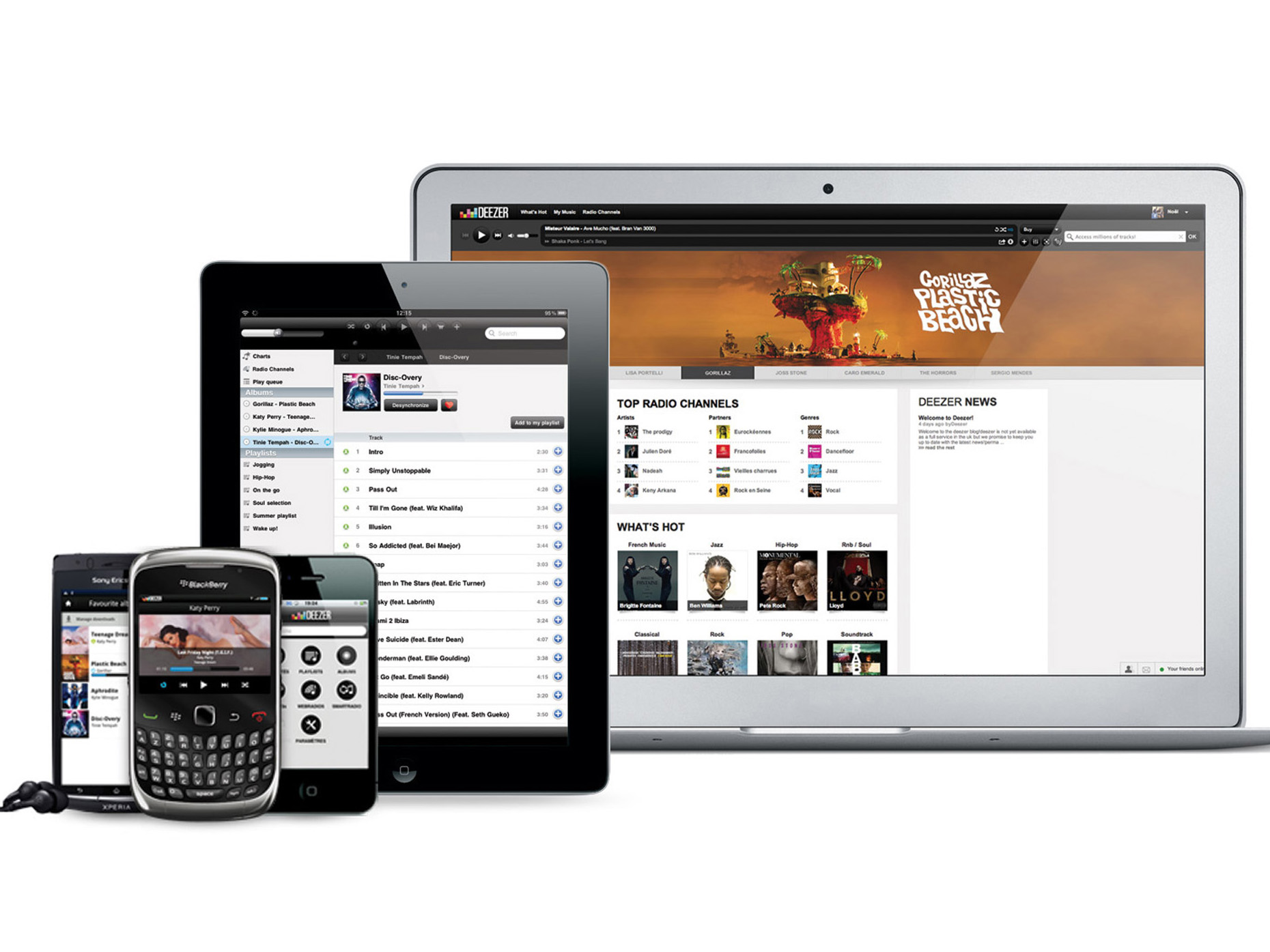iTunes Match 'not a healthy precedent' for music piracy
But what is the answer?

iTunes Match is not good for the music industry, according to new music streaming service Deezer.
Apple's music streaming service mirrors your music collection in the cloud, giving you access to high quality versions of your tracks, including those of dubious origin, for an annual fee of $25.
It may sound great to anyone whose music collection has been well bolstered by years of Limewire activity, but Mark Foster, UK MD of Deezer, warns that it sends the wrong message to consumers.
"You could end up with a huge collection of music that you've actually paid very little for," he told TechRadar.
"It's not a healthy precedent on how piracy should be tackled, it sends out completely the wrong message."
Weezer
So what is the answer to music piracy? Well, somewhat unsurprisingly, music streaming service Deezer reckons music streaming will help.
Foster told us, "I think that streaming is definitely part of the answer.
Get daily insight, inspiration and deals in your inbox
Sign up for breaking news, reviews, opinion, top tech deals, and more.
"But there are a few things that need to happen – first is education. The public needs to know that piracy is wrong at every level, morally wrong, and that artists deserve to be paid for their work and creativity.
"Second, legitimate music needs to be made easier to access and the tools need to be intuitive, not scary or too techy. A lot of people still aren't really sure what streaming is."
Foster cites Deezer-competitor Spotify as having done a large portion of the legwork on this point thanks to its freemium model, which saw UK users get unlimited access to free music with just the odd advert to put up with when it launched.
Since then, the free music has been scaled back and back, pushing users to opt instead for a monthly premium subscription.
All about the Benjamins
While streaming services are helping record companies claw back their lost profits by licensing music and creaming off royalties from Spotify, Deezer and the like, the returns still aren't all that great for artists.
"I hope that, by working together, music consumers can generate the right sorts of money so that the artists who've actually created the music can be paid a fair amount," said Foster.
"The market is growing very fast," he adds. "Digital sales are just starting to redress the physical losses of the past 20 years. It's progress – great progress."
The F word
But again, it all comes back to education and access. "Facebook will play an important role," Foster concedes, talking about Deezer's new integration with the social network.
"Its reach is huge and it's all about sharing what you like. One thing people will share is music, and Facebook are providing an easy, legal process to share songs using Deezer.
"So it's not P2P sharing, rather we're directing Facebook users to legitimate platforms."
The online music fight is just hotting up – with the old guard like iTunes and Spotify facing stiff competition from newcomers like Deezer and Boinc offering slightly different services and tie-ins with other platforms.
Who will come out on top? And who will be left by the wayside? And will musicians actually make any money? We'll be watching with interest.
Former UK News Editor for TechRadar, it was a perpetual challenge among the TechRadar staff to send Kate (Twitter, Google+) a link to something interesting on the internet that she hasn't already seen. As TechRadar's News Editor (UK), she was constantly on the hunt for top news and intriguing stories to feed your gadget lust. Kate now enjoys life as a renowned music critic – her words can be found in the i Paper, Guardian, GQ, Metro, Evening Standard and Time Out, and she's also the author of 'Amy Winehouse', a biography of the soul star.